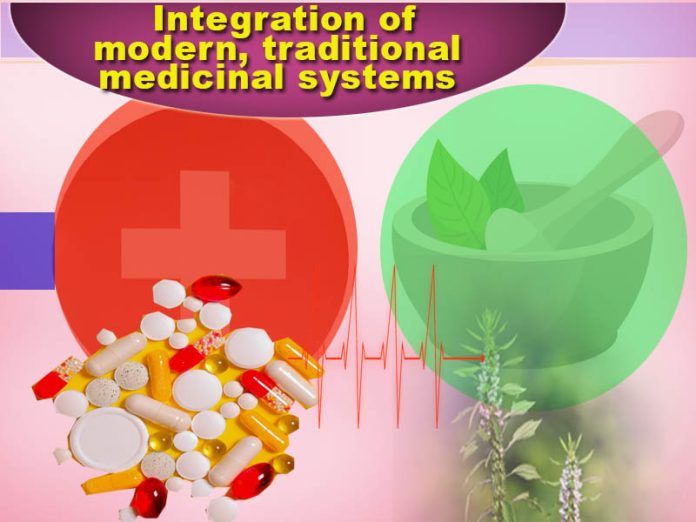Estimated reading time: 0 minutes
Inflammatory processes are crucial in the development and exacerbation of various skin disorders, from common ailments like acne and eczema to more severe diseases such as psoriasis and atopic dermatitis. Understanding these inflammatory pathways is essential not only for diagnosis and treatment but also for the development of preventive strategies to effectively manage these conditions. This comprehensive article explores the complex biological pathways involved in skin inflammation, emphasizing both modern and Ayurvedic therapeutic interventions.
The Role of Inflammation in Skin Health
Inflammation is the body’s natural response to injury or infection, aimed at healing and restoring normal tissue function. In the context of skin, this response can be triggered by pathogens, damaged cells, or irritants. The symptoms of inflammation—redness, heat, swelling, and pain—are the result of cellular and molecular activities taking place beneath the skin’s surface.
Critical Pathways Involved in Inflammatory Skin Conditions
1. Activation of Immune Cells
The skin contains various immune cells that are part of both the innate and adaptive immune systems. These cells can recognize and respond to pathogens or cellular stress by releasing cytokines, signaling molecules that mediate and regulate immunity and inflammation. For example, in psoriasis, activated T cells migrate to the skin and release inflammatory cytokines that cause skin cells to proliferate excessively.
2. Cytokine Dynamics
Cytokines such as TNF-alpha, interleukin (IL)-1, IL-6, and IL-17 are crucial in mediating inflammatory responses. These molecules initiate and amplify the pathways leading to the clinical symptoms observed in skin diseases. TNF-alpha is particularly significant in the inflammation associated with psoriasis and is targeted by several biologic therapies.
3. Compromised Skin Barrier Function
The integrity of the skin barrier is vital for protecting against external pathogens and preventing excessive water loss. In conditions like eczema, a compromised barrier allows allergens and microbes to initiate an inflammatory response, often exacerbated by genetic factors affecting key proteins like filaggrin.
4. Oxidative Stress
An imbalance between free radicals and antioxidants, known as oxidative stress, leads to cell damage. In skin diseases, oxidative stress can increase inflammation and worsen symptoms.
Pathophysiological Insights into Specific Skin Conditions
– Acne: Involves the inflammation of pilosebaceous units, often triggered by hormonal changes and bacterial growth.
– Eczema: Characterized by chronic inflammation due to environmental triggers and a compromised skin barrier.
– Psoriasis: An autoimmune disorder with rapid skin cell turnover and significant inflammation due to an overactive immune response.
Therapeutic Interventions Targeting Inflammatory Pathways
Modern medical treatments and Ayurvedic practices offer complementary approaches to managing inflammatory skin conditions:
– Topical Agents: Modern treatments include corticosteroids and calcineurin inhibitors to reduce inflammation directly at the affected sites.
– Systemic Treatments: Medications like methotrexate and cyclosporine suppress the immune response, used for severe conditions.
– Biologic Therapies: Target specific elements of the immune system, such as TNF inhibitors and IL-17 antagonists, providing precision treatment for diseases like psoriasis.
– Ayurvedic Treatments:
Ayurveda offers holistic approaches focusing on balancing the body’s doshas—Vata, Pitta, and Kapha—through herbal medicine, diet, and lifestyle changes. Common herbs used include:
– Turmeric and Neem: Known for their anti-inflammatory and antibacterial properties, used both topically and orally to reduce skin inflammation.
– Guggulu and Triphala: Help detoxify the body and improve skin health.
– Dietary Modifications: Emphasizing cooling and purifying foods that pacify Pitta and Kapha, reducing inflammation and improving skin condition.
– Panchakarma: Detoxification therapies that cleanse the body and restore doshic balance, enhancing overall skin health.
Conclusion
Integrating Ayurvedic principles with modern medical treatments offers a comprehensive approach to managing skin conditions. By addressing both the symptoms and the root causes of inflammation through a combination of diet, lifestyle, and targeted therapies, patients can achieve better outcomes, enhancing both skin health and overall well-being. This integrated approach not only treats the symptoms but also works to prevent recurrence, providing a sustainable solution for chronic skin conditions.
Related-
Know More About Ayurveda Treatments for Dermatology.
GET IN TOUCH


Recent comments